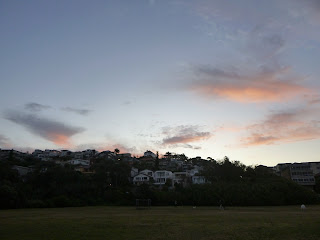TIME LAPSE TEST CONCLUSIONS
OVERALL OBJECTIVE
The overall objective of
this series of tests, was to find out the capability of my camera,
the –
Panasonic Lumix DMC
- FT30 Automatic Digital Compact
for taking Time Lapses.
OVERVIEW
So, what can this camera
do ?
I found that the capacity
of the battery is a critical factor.
When fully charged, the
battery comfortably allows me to take a –
540 frames ( 360
x 1 1/2 )
10 second
interval
- 1 1/2 hours real time
Time Lapse
LIGHT CONDITIONS
Just recapping –
Unchangiing light
conditions
This camera can cope with
unchanging daylight conditions, well.
Such that, the Time Lapse
produced is smooth, and of good quality.
Decreasing, indirect
light conditions
This camera seems to have
some difficulty adjusting to the change in focus and light intensity,
as indirect light
conditions decrease.
Such that, the Time Lapse
produced is not smooth, and a bit jumpy.
Increasing, indirect
light conditions
This camera also seems to
have some difficulty adjusting to the change in focus and light intensity,
as indirect light
conditions increase.
Such that, the Time Lapse
produced is not smooth, and jumps in a more pronounced way, though less number
of times,
than when indirect light
conditions decrease.
So, I would say that,
this camera can cope a bit better with decreasing, rather than increasing, indirect
light conditions.
Decreasing, direct light
conditions
This camera seems to have
some difficulty adjusting to the change in focus and light intensity,
as direct light
conditions decrease.
Such that, the Time Lapse
produced is not smooth and is jumpy in some places.
In particular, around the
time that the sun was setting, exactly.
Increasing, direct light
conditions
This camera also seems to
have difficulty adjusting to the change in focus and light intensity,
as direct light
conditions increase.
Such that, the Time Lapse
produced is not smooth, and jumps in a much more pronounced way than when light
conditons decrease., with some major focus issues. Though, I think that this
was in part because the movement of the waves exponentially increased the
changes in light direction and intensity, so that the camera could not cope.
Light Quality
However, I was very impressed
by the quality of light captured overall, in particular, in the lower
light conditions
IN GENERAL
Decreasing vs
Increasing, Indirect Light
Conditions
This camera can cope a
bit better with decreasing, rather than increasing, indirect light conditions.
Decreasing vs
Increasing, Direct Light
Conditions
This camera can cope a
bit better with decreasing, rather than increasing, direct light conditions.
And,
Indirect Light vs Direct
Light, Conditions
It would seem that this
camera can cope better with indirect light changes, than direct light changes.
Excluding the photo of the Lumix camera
© Katherine Stuart 2023
Dochas Books Film








